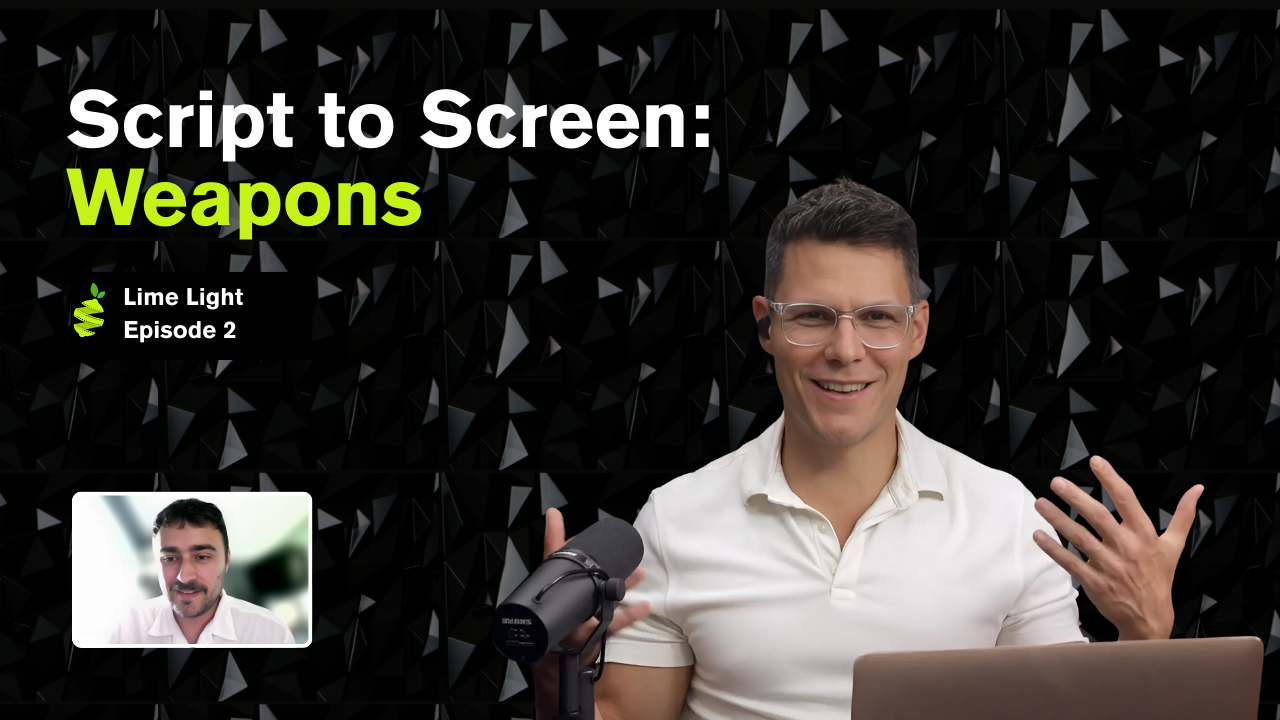When One Artist Does It All [Podcast]
What happens when a bold screenplay makes it to the screen—but something essential gets lost in translation? In our latest deep dive, John sits down with Meara to dissect Weapons, comparing the sharpness of the script with the choices made in the final cut. From the muddled “aging down” storyline to clever script details that never made it on screen, their conversation explores where the film soared, where it stumbled, and how the right producer can mean the difference between a good idea and a great film.
Full Transcript: Lime Light Episode 2: When One Artist Does It All
Participants:
John Schramm - Head of Development, Kinolime
Meara Owen-Griffiths - Writer, CE, Kinolime
John:
Welcome back! Today we’re diving into one of our favorite movies—Weapons. Joining us live from the UK is Meara Owen Griffiths, who read the screenplay, watched the film, and is here to talk about the differences between page and screen. Meara, how’s it going?
Meara:
Pretty good! And funny coincidence—we’re both in light-colored outfits today.
John:
True. So, you wrote an article for us a little while back about Weapons. Now that you’ve seen the film, I’ll start with the big question: what was the major difference between the screenplay and what ended up on screen?
Meara:
For me, the “aging down” element stood out. In the screenplay, it was clearer. But in the movie, it felt vague, under-explained, and honestly, confusing. Like, why did she even go to her great-niece’s house? A lot of it just didn’t track, which really bothered me.
John:
Yeah, I had the same issue. Watching her stand in the basement staring at a wall didn’t give us enough to understand what was happening.
Meara:
Exactly. I actually think the less-is-more approach of the screenplay worked better. The film tried to explain, but it didn’t land.
John:
Fair point. On the other hand, what are some positive things the film did compared to the script?
Meara:
Visually, it added atmosphere and tone that you just can’t get from the page. Certain scenes had more energy on screen.
John:
Was there anything from the script you wished made it into the movie?
Meara:
Yes—the name tags. It was such a clever touch in the screenplay and I really missed it in the film.
John:
So overall, would you say the film stayed fairly close to the screenplay?
Meara:
Yes, pretty close.
John:
Same. But this does raise a larger point: sometimes even great writers need the right producer—not in the sense of logistics, but someone who helps shape the story. I always compare it to guiding a child walking near a street: you let them explore but keep them from running into danger.
In Weapons, the writing is competent and ambitious, but it feels a bit empty—like it’s missing a clear thematic core. For example, the school shooting thread felt like a leftover idea from an earlier draft that never fully carried through. A good producer might’ve helped pull that theme out. Did you feel the same?
Meara:
Definitely. It felt logically shaky, like something important had been stripped away.
John:
Yeah, exactly. Anyway, Meara, thanks so much for reading the script and watching the film. We really appreciate your insight, and I look forward to doing this again for the next one.
Meara:
Thanks! Talk soon.

